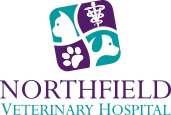Many pets require some form of pet surgery during their lifetime, whether it’s a spay/neuter procedure, mass removal, or wound care. As a beloved member of your family, your pet deserves to receive surgical care that is both safe and effective, which is just what we offer at Northfield Veterinary Hospital. Our surgical services are designed to provide pets with the best possible surgical care, and we place a strong emphasis on patient safety and comfort. We use only the most advanced pet surgical tools and technology, including state-of-the-art monitoring equipment. All routine and non-routine soft tissue (no bone involved) surgeries are performed in-house, with the option to bring in a specialist for complex and orthopedic procedures.
Before Your Pet’s Surgery
Before your pet’s surgery at our animal hospital, we take the time to explain what will occur before, during, and after surgery and to address any concerns you have. However, if you prefer to receive just a brief overview of what to expect, feel free to let us know. Our goal is to make you as comfortable as possible with your pet’s surgical information. We perform a pre-anesthetic physical exam and blood work prior to all surgical procedures, which allows us to determine if your pet is healthy enough for anesthesia. If no underlying health issues are found, we can prep your pet for surgery.
We begin prepping your pet by placing an IV catheter in his or her limb for the administration of medication and fluids. Then, we administer anesthesia. To keep your pet as comfortable as possible, we provide pain medication before and after surgery. We also rely on state-of-the-art monitoring equipment to monitor all of your pet’s heart rate, breathing, blood pressure, and pulse oximetry. Once your pet is fully prepped, the surgery is performed.
What to Expect After Your Pet’s Surgery
After surgery, your pet is moved to a recovery area, and a member of our team contacts you to arrange for pickup. We provide at-home instructions for care at the time of your arrival, including diet instructions and the symptoms to expect. Most pets typically exhibit sluggish behavior after surgery. This is perfectly normal. You can also expect your pet to be less coordinated and sleepier than usual. We may also prescribe pain medication. If ever you have questions about your pet’s surgery, please feel free to contact us.
